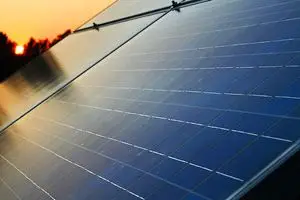With the economic crisis and budget cuts, the need for a reform of the electricity system is more current than ever. There are many news stories on the subject, and in particular, there is a debate between the large electric companies and the small producers, who demand a law that regulates self-consumption and net balance. But what are these concepts?
These two terms refer to different modalities in which a consumer can generate their own energy, for example, through a photovoltaic panel, a wind generator, a cogeneration group, or other technologies.
Differences between cogeneration and self-consumption
At present (in summary), a consumer cannot feed energy into the grid. In order to do so, they must request registration as an electricity producer. After registering, the product sells all the energy produced at an agreed price, and on the other hand buys all the energy they consume. This process doesn’t make much sense, right?
Self-consumption brings some common sense to this situation. It consists of generating your own energy and consuming it on-site. If at some point you need more energy than you can generate, you buy the rest from the grid.
Net balance represents a further step in the concept. It involves consuming the energy you produce, and selling the excess to the grid. Overall, you only buy the energy you consume on a net basis, meaning the difference between what you buy and what you sell.
There is a debate and opposing positions between small producers in favor of net balance, and the large electric companies. Below, I summarize, as neutrally as possible, the arguments that each one puts forward.
Pro net balance vision
Supporters of net balance criticize the electric companies as lobbies, powerful groups that, taking advantage of their economic power, pressure and bribe politicians to support their positions and obtain competitive advantages. Their main points are as follows:
- Net balance represents a decentralized and democratic generation system, where any consumer can produce their own energy.
- It eliminates electrical transport losses, which can represent up to 50% of the energy, making it more efficient.
- Most of the sources used are renewable, making them clean and virtually inexhaustible.
- It reduces the country’s energy dependence, relying to a lesser extent on imports of fossil fuels or uranium.
Electric company’s perspective
The electric companies also present their view of the problem, and to be fair, they are right in certain aspects. Among their main arguments are the following:
- They are required to make enormous investments in energy plants and transport networks, in order to guarantee supply to everyone at all times. However, for example, on a sunny day, no one may consume their energy, but they are required to have the installed capacity for cloudy days and nighttime periods. In addition, there is duplication in installed electrical capacity.
- By reducing consumption, they argue, these fixed costs will have to be borne by the rest of consumers, creating differences between users. They suggest implementing a compensation tariff for self-consumption, in other words, a tax on those who do not consume energy.
- Generation with small equipment results in poorer quality of supply, since the connection and disconnection of elements generates harmonics and other distortions in the grid.
- Balancing the electric grid becomes incredibly complex. A power plant does not turn on instantly, it takes hours or even days. Currently, electric companies have precise forecasts that allow them to schedule turning on and off, pumping of hydroelectric power, etc. Balancing a decentralized grid can become impossible.
- Large energy plants, due to their size, have all possible improvements to increase their efficiency. Therefore, the question arises whether a decentralized system is really more efficient than a centralized system with transport losses.
- They question the environmental benefit of having a huge number of small generators, compared to a few large ones, due to the environmental costs of manufacturing, installation, recycling, and maintenance.
Summary and personal opinion
From my experience, when setting up a domestic photovoltaic system, most of the cost falls on the batteries. Self-consumption is an effective way to eliminate this cost and, if the installation is well-sized, it is beneficial for the environment. Installations should be sized moderately, to avoid wasting energy and ensure the profitability of the installation. It makes no sense to establish a compensation tariff for self-consumption, for energy that the user does not even consume.
On the other hand, net balance is also a bit of a stretch, this time on the part of small producers. The overall balance is that the grid is required to be their ‘battery’, releasing the excess energy that, a few hours later, they will consume themselves. It is logical for the electric companies to be against this, as they are required to become a giant electrical storage, a regulatory element of the grid, the quality of supply, and the guarantee of supply, while their profits are being cut. On the other hand, with net balance, decentralized generators tend to be of a ‘less moderate’ size, as unlike in the case of self-consumption, the excess generated energy is purchased, contributing to the amortization of the investment.
However, what is truly sad is that these debates always take place in economic terms, and not so often in terms of efficiency and environmental impact.
And you, what do you think? Are the small producers right or the large electric companies? Feel free to share your opinion by leaving a comment.
